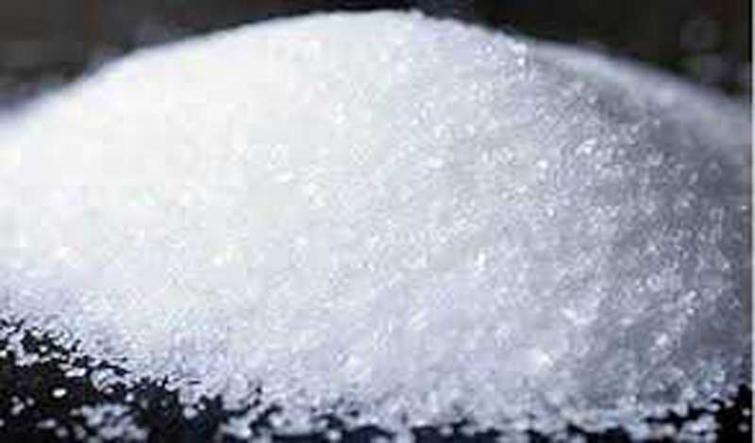 Sugar | Ethanol
Sugar | Ethanol New Delhi/IBNS: The Centre has increased the incentive on sugar sacrificed for producing ethanol from B-heavy molasses/sugarcane juice/sugar syrup/sugar has been doubled from October 2021, onwards in their monthly release quota, Ministry of Consumer Affairs, Food & Public Distribution said in a release.
This is done to encourage sugar mills to divert excess sugar cane / sugar to ethanol and to achieve targets of blending ethanol with petrol in line with Ethanol Blended with Petrol program,
The Department of Food and Public Distribution under the Ministry of Consumer Affairs, Food and Public Distribution allocates mill wise monthly release quota of sugar for domestic sale by sugar mills every month.
This is done on the basis of stocks held by the mills, export performance and diversion of sugar to ethanol.
Notably, in every sugar season (October-September), production of sugar is around 320-330 Lakh Metric Tonne (LMT) as against the domestic consumption of 260 LMT which results in huge carry over stock of sugar with mills.
Due to excess availability of sugar in the country, the ex-mill prices of sugar remain subdued resulting in cash loss to sugar mills, the ministry said.
This excess stock of 60 LMT also leads to blockage of funds and affects the liquidity of sugar mills resulting in accumulation of cane price arrears, it added.
It is expected that in the current ethanol supply year 2020-21 (December - November), about 300-325 cr ltrs ethanol is likely to be supplied to OMCs to achieve 8 - 8.5 percent blending levels.
As on September 26, against the contracts of 349 cr ltrs, 252 cr ltrs ethanol have been supplied by sugar mills / distilleries to OMCs for blending with petrol thereby achieving 8 percent blending.
It is also likely that India will be achieving a 10 percent blending target by 2022.
With a view to support the sugar sector and in the interest of sugarcane farmers, production of ethanol from B-Heavy Molasses, sugarcane juice, sugar syrup and sugar has been allowed.
"To achieve blending targets, government is encouraging sugar mills and distilleries to enhance their distillation capacities for which Government is facilitating them to avail loans from banks for which interest subvention @ 6 percent or 50 percent of the interest charged by the banks whichever is lower is being borne by Government. This will bring an investment of about Rs. 41,000 crore," it said.
As a result of these measures it is likely that ethanol distillation capacities in the country would be more than doubled by 2025, which would ensure achievement of the 20 percent blending target.
It will address the problem of surplus sugar & ensure timely payment of cane dues of farmers.
There will be a massive impact on the country's economy due to 20 percent blending by 2025, the ministry said.
According to the ministry:
It would benefit maize & paddy farmers, would address surplus grain problem; about 165 lakh tons of grains will be utilized.
Diversion of 60 lakh tons of surplus sugar would address the problem of surplus sugar, check depressed sale of sugar, improve liquidity of sugar mills and ensure timely payment of cane dues of farmers.
It will bring new investment opportunities as about Rs 41,000 crore would be invested to set up new distilleries in rural areas & would result in job creation in villages.
Would improve air quality, reduce Carbon Monoxide emission by 30-50 percent and Hydrocarbon by 20 percent.
Would save foreign exchange of about Rs 30000 cr on account of crude oil import bill and would reduce dependence on imported fossil fuel thereby would help in achieving the goal of Atmanirbhar Bharat in petroleum sector.
Support Our Journalism
We cannot do without you.. your contribution supports unbiased journalism
IBNS is not driven by any ism- not wokeism, not racism, not skewed secularism, not hyper right-wing or left liberal ideals, nor by any hardline religious beliefs or hyper nationalism. We want to serve you good old objective news, as they are. We do not judge or preach. We let people decide for themselves. We only try to present factual and well-sourced news.







